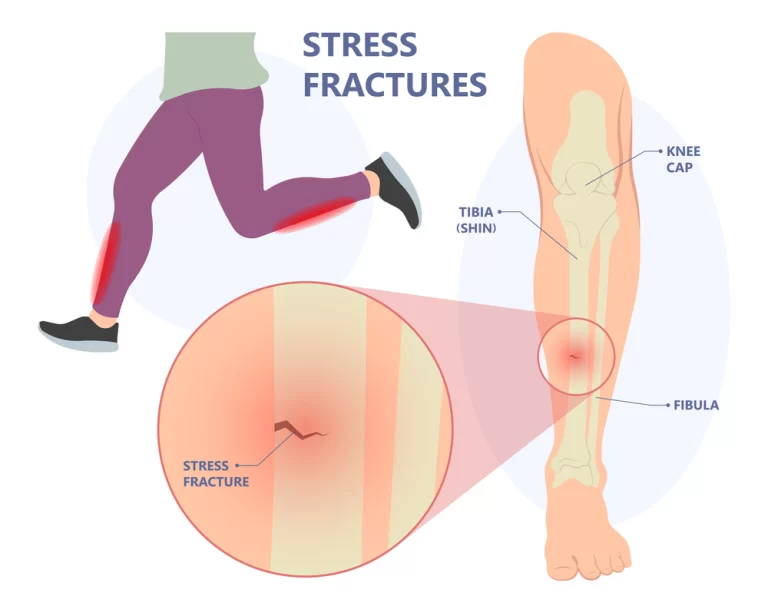
Running is an exhilarating sport, but it’s not without its challenges. One common issue that plagues runners, especially those who push themselves to the limit, is stress fractures. These small cracks in bones can be painful and disruptive. In this article, we’ll explore how runners can prevent stress fractures, how to manage them if they occur, ways to prevent them from getting worse, and the role of proper shoes in this context.
How Can Runners Prevent Stress Fractures?
Preventing stress fractures starts with understanding the factors that contribute to their development. Here are some strategies to keep stress fractures at bay:
- Gradual Progression: Avoid overtraining and increase mileage gradually. Sudden spikes in intensity or volume can lead to stress fractures.
- Proper Footwear: Invest in well-fitting, supportive running shoes that provide ample cushioning and shock absorption.
- Cross-Train: Incorporate other forms of exercise, such as swimming or cycling, to reduce the repetitive stress on your bones.
- Nutrition: Ensure you get enough calcium, vitamin D, and other nutrients that support bone health.
- Rest and Recovery: Give your body time to recover between runs. Adequate rest is essential for bone repair and strengthening.
- Listen to Your Body: Pay attention to early signs of pain or discomfort and address them promptly.
How Should a Stress Fracture Be Managed?
If you suspect a stress fracture, it’s crucial to take immediate action. The following steps can help manage a stress fracture effectively:
- Rest: Give your body the rest it needs. This often involves a break from running, potentially using crutches to reduce weight-bearing on the affected area.
- Icing: Apply ice to the injured area to reduce inflammation and alleviate pain.
- Compression: Use compression bandages or sleeves to provide support to the affected area.
- Elevation: Elevating the injured limb can reduce swelling.
- Medical Evaluation: Consult a healthcare provider for a proper diagnosis. They may recommend imaging tests like X-rays or MRIs to confirm the stress fracture.
- Follow Medical Advice: Adhere to your healthcare provider’s recommendations, which may include specific treatment or rehabilitation exercises.
How Can You Prevent a Stress Fracture from Getting Worse?
Once you’ve identified a stress fracture, it’s vital to take steps to prevent it from worsening. Follow these guidelines:
- Strict Rest: Adhere to your healthcare provider’s recommended rest period, which may last several weeks.
- Protective Devices: Some stress fractures may require the use of braces, boots, or casts to immobilize the affected area.
- Rehabilitation: Work with a physical therapist to implement a rehabilitation plan that gradually reintroduces weight-bearing and strengthens the injured area.
- Follow-Up Care: Attend follow-up appointments with your healthcare provider to monitor your progress and ensure proper healing.
What Shoes Prevent Stress Fractures?
- Choosing the right running shoes can significantly reduce the risk of stress fractures. Look for the following features in your running shoes:
- Cushioning: Good cushioning helps absorb the impact forces from running, reducing the stress on your bones.
- Support: Shoes with proper arch support and stability features can help prevent overpronation and excessive stress on the bones.
- Fit: Ensure your shoes fit properly, with enough room in the toe box to prevent excessive pressure on the forefoot.
- Replace When Worn: Regularly replace your running shoes, as worn-out shoes lose their cushioning and support.
In conclusion, preventing and managing stress fractures is essential for runners to continue enjoying their sport. By following preventive measures, promptly addressing any signs of trouble, and seeking professional guidance, runners can maintain their active lifestyles while reducing the risk of stress fractures. The right running shoes play a significant role in preventing these injuries, so choose your footwear wisely and prioritize your bone health for long-term running enjoyment.
